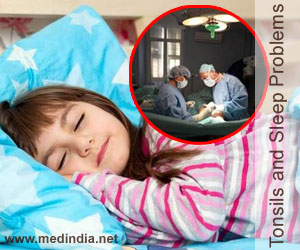By listening to your voice, AI can determine if you are sleep deprived and need more sleep
- Sleeping doesn't always mean sleeping well, and AI can gauge the quality of your sleep with just your morning voice
- AI technology can diagnose sleep deprivation by analyzing the rhythm and tone of a person's voice, which could provide a simple and low-cost approach for medical providers to assess if someone is sleep deprived
- AI has the potential to revolutionize the healthcare industry, from detecting early indicators of sickness to enhancing the accuracy of medical diagnoses
AI can Hear Your Morning Voice
Sleep deprivation can cause inflammation in the nose and throat, which can impair the voice tone. Furthermore, weariness might affect the rhythm of speech. By analyzing a person's voice, an artificial intelligence system could detect if they are sleep-deprived. This could be helpful in diagnosing sleep deprivation in people who aren't aware of it. Sleep deprivation can result in harmful physiological changes in the body, which must be identified and addressed. AI technology could be a simple and low-cost solution for medical providers to determine whether someone is sleep deprived.Does Morning Tone Matter?
According to the most recent discoveries of New Scientist, an artificial intelligence (AI) has been developed that can diagnose sleep deprivation by analyzing the rhythm and tone of a person's voice. This technology could provide a simple and low-cost approach for medical providers to assess if someone is sleep deprived.Sleep deprivation is a widespread issue that affects millions of individuals globally. It can induce undesirable physiological changes in the body, such as increased inflammation in the nose and throat, which can impair voice tone. Fatigue can also alter speech rhythm, making it difficult to communicate properly.
This technique has numerous possible applications. It might be used to check for sleep disorders like sleep apnea or insomnia, as well as to monitor the sleep patterns of those who work in high-risk jobs like truck drivers or pilots. It could also be used to create personalized sleep therapies that are suited to each individual's exact needs.
AI-The Potential Revolutionizer
This AI technology's creation is just one example of how artificial intelligence is being used to address some of today's most critical health challenges. AI is becoming an increasingly significant tool in the healthcare industry, from detecting early indicators of sickness to enhancing the accuracy of medical diagnoses.As the field of AI evolves, we may expect to see more inventive applications of this technology in the healthcare industry. AI has the potential to revolutionize the way we approach healthcare and improve the lives of millions of people around the world, whether it is creating novel cures for diseases or enhancing the accuracy of medical diagnostics.
Source-Medindia
















